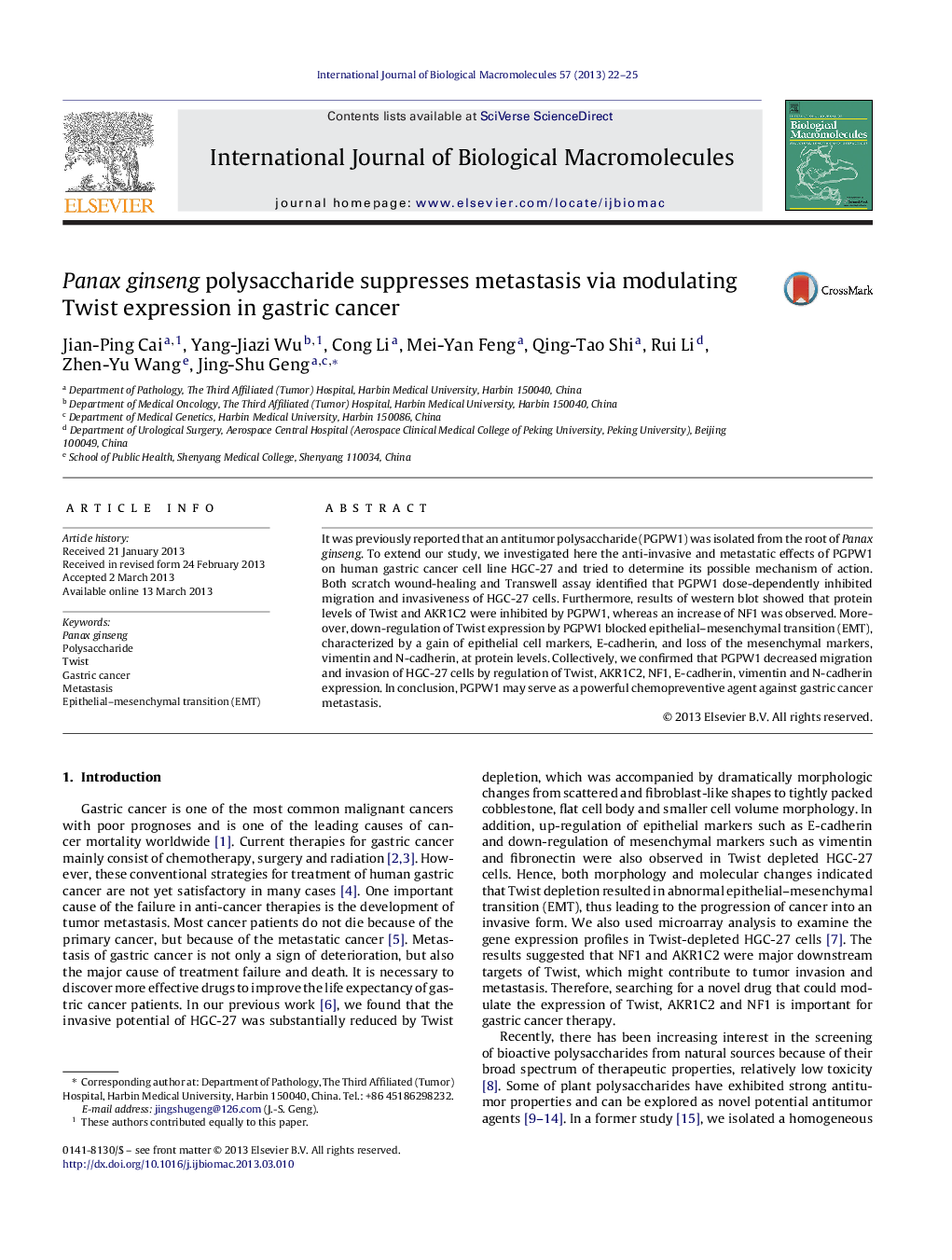| Article ID | Journal | Published Year | Pages | File Type |
|---|---|---|---|---|
| 8333677 | International Journal of Biological Macromolecules | 2013 | 4 Pages |
Abstract
It was previously reported that an antitumor polysaccharide (PGPW1) was isolated from the root of Panax ginseng. To extend our study, we investigated here the anti-invasive and metastatic effects of PGPW1 on human gastric cancer cell line HGC-27 and tried to determine its possible mechanism of action. Both scratch wound-healing and Transwell assay identified that PGPW1 dose-dependently inhibited migration and invasiveness of HGC-27 cells. Furthermore, results of western blot showed that protein levels of Twist and AKR1C2 were inhibited by PGPW1, whereas an increase of NF1 was observed. Moreover, down-regulation of Twist expression by PGPW1 blocked epithelial-mesenchymal transition (EMT), characterized by a gain of epithelial cell markers, E-cadherin, and loss of the mesenchymal markers, vimentin and N-cadherin, at protein levels. Collectively, we confirmed that PGPW1 decreased migration and invasion of HGC-27 cells by regulation of Twist, AKR1C2, NF1, E-cadherin, vimentin and N-cadherin expression. In conclusion, PGPW1 may serve as a powerful chemopreventive agent against gastric cancer metastasis.
Keywords
Related Topics
Life Sciences
Biochemistry, Genetics and Molecular Biology
Biochemistry
Authors
Jian-Ping Cai, Yang-Jiazi Wu, Cong Li, Mei-Yan Feng, Qing-Tao Shi, Rui Li, Zhen-Yu Wang, Jing-Shu Geng,
